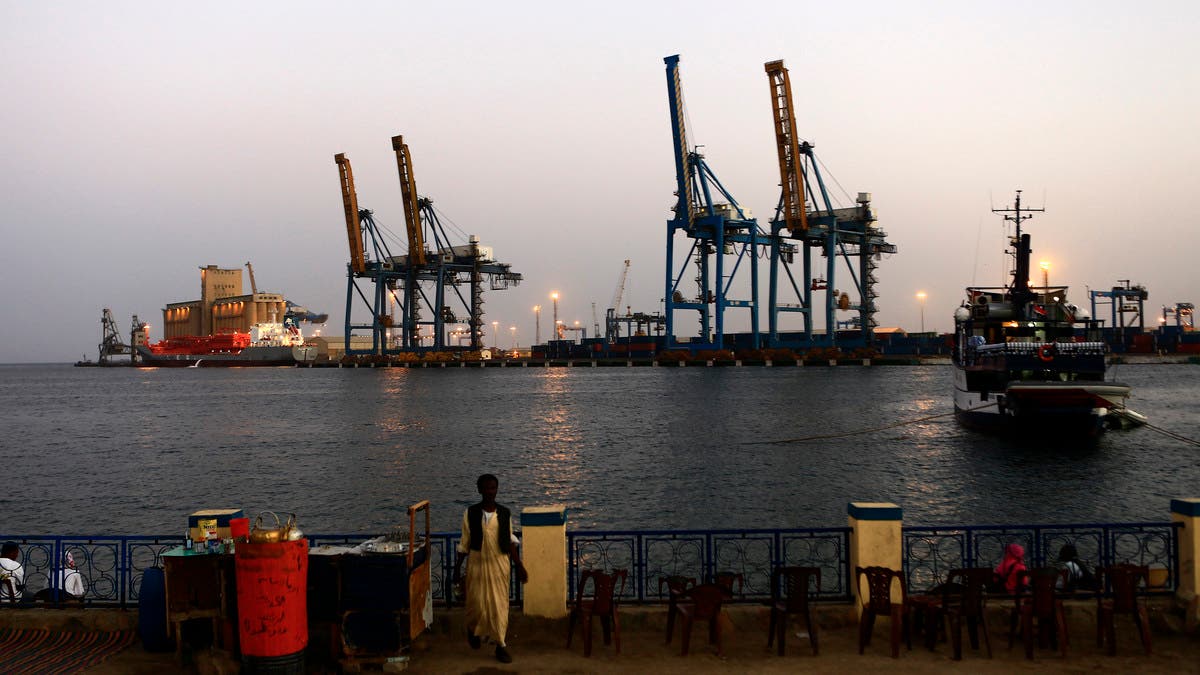The United Arab Emirates will build a new Red Sea port in Sudan, as part of a $6 billion investment package, said DAL group chairman Osama Daoud Abdellatif, a partner in the deal which marks the first major foreign investment since the military took power in an October coup.
Abdellatif said the package includes a free trade zone, a large agricultural project and an imminent $300 million deposit to Sudan's central bank.
Western donors suspended billions in aid and investment to Sudan after the coup, plunging an economy that was already struggling into further turmoil and depriving the government of much needed foreign currency.
For the latest headlines, follow our Google News channel online or via the app.
Ibrahim told Reuters on Wednesday that a memorandum of understanding had been signed with the UAE for a port and agricultural project, but the details have not previously been reported.
The finance ministry did not immediately respond to a request for comment on details of the deal.
The $4 billion port, a joint project between DAL group and Abu Dhabi Ports, owned by Abu Dhabi's holding company ADQ, would be able to handle all kinds of commodities and compete with the country's main national port, Port Sudan, Abdellatif said.
Located about 200 km (124 miles) north of Port Sudan, it would also include a free trade and industrial zone modelled after Dubai's Jebel Ali, as well as a small international airport, he said. The project is in “advanced stages,” with studies and designs complete, he said.
Rumours of Gulf investments in Port Sudan, and in agricultural projects elsewhere in the country, have in the past stirred opposition and sometimes protests.
Port Sudan has long been plagued with infrastructure challenges and was shut by a political blockade for six weeks late last year, losing business from major international shippers.
The UAE deal also includes the $1.6 billion expansion and development of an agricultural project by Abu Dhabi conglomerate IHC and DAL Agriculture in the town of Abu Hamad in northern Sudan, Abdellatif said.
Alfalfa, wheat, cotton, sesame, and other crops would be grown and processed on the 400,000 acres of leased land, he said. A $450 million, 500 km (310 mile) toll road connecting the project to the port would be built as well, financed by the Abu Dhabi Fund for Development.
Under the agreement, the Fund would also make a deposit of $300 million to the Central Bank of Sudan, Abdellatif said.
After the military ousted Omar al-Bashir in 2019, the UAE and Saudi Arabia pledged a combined $3 billion in grants and in-kind aid to Sudan, which military and civilian leaders say was not delivered in full.
Two high-level Sudanese government sources told Reuters the outlines of the new deal had been agreed between Sudanese leader General Abdelfattah al-Burhan and UAE President Sheikh Mohamed bin Zayed during a recent visit to the Gulf state.
A representative for Abu Dhabi Ports said the company had no comment, while representatives for ADQ, the Abu Dhabi Fund, IHC, and the Abu Dhabi and UAE governments did not immediately respond to requests.
“Ourselves and our partners in the UAE, we have already invested in a bank, a hotel, mining,” said Abdellatif, whose conglomerate has also bid for control of one of Sudan's largest telecom companies, Zain Sudan.
“The UAE wants a stable Sudan so they can do more and more of these investments, but we are not waiting for everything to be perfect,” he added.
Read more:
Sudan signed MoU with UAE for farm project, port: Finance minister
Abu Dhabi Crown Prince says dialogue important to overcome challenges in Sudan


 World3 years ago
World3 years ago
 World3 years ago
World3 years ago
 Business11 months ago
Business11 months ago
 Entertainment7 years ago
Entertainment7 years ago
 World7 years ago
World7 years ago
 Entertainment7 years ago
Entertainment7 years ago




